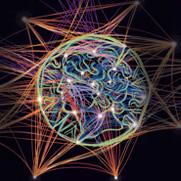Conference 24th March 2012 9 a.m. Building 65, Avenue Campus
The Connected Past: people, networks and complexity in archaeology and history
Keynotes: Professor Carl Knappett (University of Toronto), Professor Irad Malkin (Tel Aviv University), Professor Alex Bentley (University of Bristol)
- Web page
- http://connectedpast.soton.ac.uk/
- Categories
- Archaeology, Human environment interaction, Human population, Social and Socio-economic Systems
- Submitter
- Marcus Erridge
A two-day collaborative, multidisciplinary symposium at The University of Southampton,24-25 March 2012.
Over the past decade ‘network’ has become a buzz-word in many disciplines, including archaeology and history. Scholars in both disciplines have begun to explore the idea of complex networks in their efforts to understand social relationships in the past as well as technical relationships in their data, using methodologies drawn from complex network models devised by sociologists and physicists such as Duncan Watts and Albert-László Barabási. These recent developments in network analysis are based on a long tradition of work in many disciplines, including sociology, mathematics and physics, but with the increasing ubiquity of powerful computing technology across the academic spectrum, ‘network’ perspectives and methodologies are now becoming understood and used more broadly throughout the sciences and humanities.
The often large and complex datasets common in archaeology and history have stimulated the use of various techniques from network analysis as a tool for exploring these data, and such applications are already proving to be innovative and fruitful approaches to topics such as the transmission of ideas and technologies, the movements of people, objects and belief systems, interregional interactions and maritime connectivity. This growing interest is reflected in the increasing number of conferences on network analysis we have seen in these disciplines, including ‘Networks in the Greek World’ in Rethymnon, Crete (2006), ‘Communities and Networks in the Ancient Greek World’ held in Dublin (2009), a session at the Society for American Archaeology (2010), and a session at Computer Applications and Quantitative Methods in Archaeology (CAA) Beijing (2011).
These meetings have resulted in original archaeological and historical applications of network analysis published in collected volumes and journal papers, and clearly attest to its potential. However, the adoption of network techniques within archaeology and history remains surprisingly limited. Existing applications have not yet tapped into the full potential of a network perspective. The nature of historical and archaeological data as indirect and fundamentally fragmentary reflections of past dynamic processes certainly presents network analysts with a challenge, but one that promises to allow archaeologists and historians to make valuable contributions to the “new” science of networks, especially as regards the exploration of temporal change in networks over supra-generational and potentially evolutionary timeframes.
This conference will provide a platform for pioneering, multidisciplinary collaborative work in the field of network science. It aims to bring together the disparate international community of scholars working to develop network-based approaches and their application to the past and to provide a forum for the discussion of the most recent applications of the techniques, in order to ask what has been successful or unsuccessful, to foster cross-disciplinary collaborations and cooperation, and to stimulate debate about the application of network science within the disciplines of archaeology and history in particular, but also more broadly across the entire field.
Conference objectives:
To provide a forum for the presentation and debate of multidisciplinary network-based research and debate the ramifications of applying network-based perspectives and methodologies to archaeological and historical data To establish a group of academics using network-based approaches to archaeology, history and allied disciplines To foster cross-disciplinary dialogue and collaborative work aimed at integrating analytical frameworks for understanding complex networks and their application to historical and archaeological problems. To stimulate debate about the theory and application of network analysis within archaeology and history and the relevance of this work for the continued development of network theory in other disciplines.
Please see here for programme, plus a full list of speakers and abstracts.
